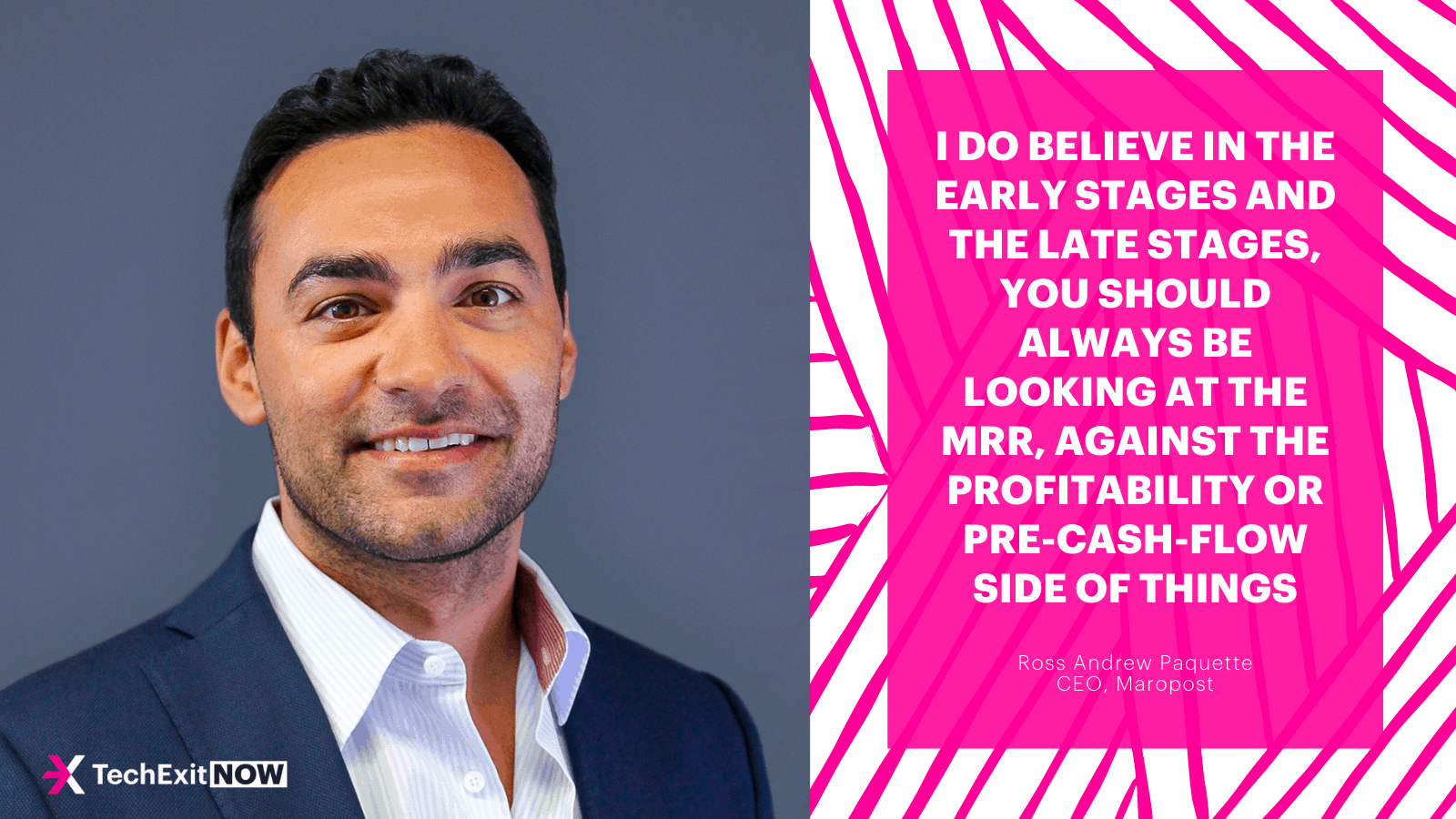How Maropost CEO Ross Andrew Paquette tracks the path to going public
Jessica Galang

In March, Toronto-based marketing automation company Maropost made its first-ever acquisition for Neto, an Australian e-commerce platform that provides an all-in-one solution for ecommerce, point-of-sale, inventory management and shipping labelling.
At C$58 million, the acquisition will allow Maropost to acquire Neto talent that has decades of SaaS experience under their belt, which CEO Ross Andrew Paquette says is “virtually unheard of” in Toronto.
The company also completed the acquisition themselves — uncommon for a process that includes parsing through complex data. However, it’s on-brand for a company like Maropost, which has tried to go against the grain in how they approach exits, including buying their company back from VCs to start the path of exiting going public. In this piece, we talk about the metrics he’s watching to ensure profitability, why he’s chosen his path and going through acquisition alone.
Why Maropost expanded into eCommerce
Paquette says he believes companies should build technology themselves, but acquiring Neto meant getting years of experience that can’t be taught.
While in a typical acquisition there would be a banking firm acting as a mediator between two parties, which can reduce friction, it was Paquette himself talking to founders.
Closing the acquisition over 30 days during the holiday season in 2020, the team had to go through financial, legal documentation, share certificates, the IP review and other documents — eventually accepting that they couldn’t consume every piece of information. “Hopefully you know, we're in a 90% range of nothing going sideways or not uncovering any landmines after the fact.”
However, leading the acquisition themselves meant they could get a closer connection to the founders. “That really allowed us to accelerate, not just the relationship that we were building, but my sort of understanding and visibility into their philosophies and goals.”
While Paquette would not necessarily undergo the time-consuming process of acquisition again unless there was a compelling opportunity, he says one of the benefits has been acquiring the company’s infrastructure metrics reporting.
“We would use that next acquisition to open ourselves up in a market that we're not in today to scale and benefit in the same way we would with liquidity or acquisition,” he says. “Looking for great people, a company that has great customers already there, just a lot of areas that you're able to attain value.”
When philosophies differ in VC financing
Paquette is a big believer in bringing his company to profitability. In 2016, Paquette sold 25% of Maropost to external venture capital firms. In 2019, he bought those shares back and has since not taken any venture financing, according to BetaKit. For Paquette, there was a difference in philosophy between the VC model, which often sees companies sell to exit, and his belief in profitability.
“The people we did work with are actually the best people we met,” he says. “It still wasn't a workable relationship because I need to build more of a long-standing profitable business that can withstand things like a global pandemic.”
Founders should weigh the pros and cons of working with the VCs interested in them, as not all strategies VCs bring to the table are a fit for all companies. “What we saw work at Salesforce might not work at HubSpot, or what worked at NetSuite may not work at Gmail,” he says.
To ensure that the company is on the right path, Paquette tracks monthly recurring revenue and net revenue retention, closely in the beginning. Over time, they began tracking more traditional metrics like lifetime value and customer acquisition cost.
“I do believe in the early stages and the late stages, you should always be looking at the MRR, against the profitability or pre-cash-flow side of things,” he says. Regardless of what vertical you’re in, this is helpful for tracking month-over-month expenses and growth.
“You can look at these core metrics and it doesn't matter how many zeros they have on them, you understand if the business is moving in a successful position,” Paquette says.
To keep its model sustainable, Maropost adopts a direct sales model and tracks how it spends income, how it grows the business and how it acquires customers. That means hiring the right people, working in the right location, and making decisions about making smart expenses
“A big part of our philosophy is to ensure that the decisions that myself, the executive team and department heads are making are always in the best interests of the business and our employees,” he says.
BACK









